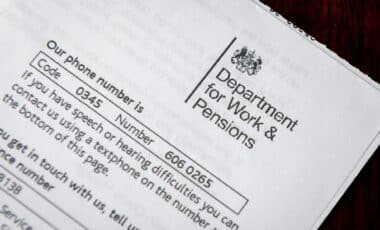A little-known allowance from the Department for Work and Pensions (DWP) could offer up to £4,686.24 annually for workers whose disability or illness has caused them to earn less.
The Reduced Earnings Allowance provides vital support to individuals whose ability to work or return to their regular occupation has been significantly impacted by a disability—even at a minimal level of severity.
For many workers with a disability, the financial struggle often extends beyond medical costs and rehabilitation. The allowance, which could benefit individuals even with as little as 1% disability, helps those whose work capacity has diminished since the onset of their condition, making it impossible for them to maintain previous income levels.
Reduced Earnings Allowance: Key Features and Eligibility
The Reduced Earnings Allowance compensates workers whose income has been reduced due to a disability or illness that prevents them from returning to their usual occupation.
To qualify for this support, applicants must demonstrate that their condition significantly limits their ability to work and has caused them to earn less than before. This applies even if the disability or illness is minimal—starting from as little as 1%.
However, eligibility also depends on the specific circumstances surrounding the disability. The incident that caused the disability must have occurred before October 1, 1990, as after this date, the Industrial Injuries Disablement Benefit (IIDB) took over.
In some cases, individuals can claim both allowances if applicable, with the Reduced Earnings Allowance providing a cap of £90.12 per week. The final amount received is determined by the individual’s previous earnings.
For applicants to access the allowance, they must prove that they cannot pursue any work that would restore their previous earnings. This is essential for receiving financial support. Moreover, the application process involves contacting the Barnsley Industrial Injuries Disablement Benefit Centre, filling out the appropriate forms, and submitting them for consideration.
Transition to Retirement Allowance After State Pension Age
Once an individual reaches state pension age and is no longer in regular employment, the Reduced Earnings Allowance is replaced by the Retirement Allowance. While this provides continued financial support for those affected by disability or illness, it may affect eligibility for other income-related benefits, either for the individual or their partner.
For workers who have previously received the Reduced Earnings Allowance, the transition to the Retirement Allowance is an important step in maintaining some financial stability as they retire from the workforce. The amount received through Retirement Allowance can vary depending on individual circumstances, just as it did during the working years.
The Reduced Earnings Allowance is a critical financial lifeline for many workers impacted by long-term disabilities, offering crucial support in times of reduced income.









